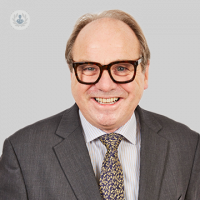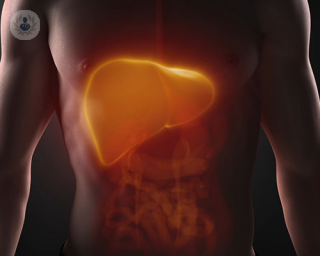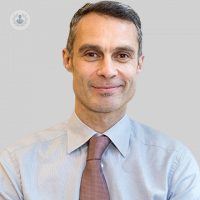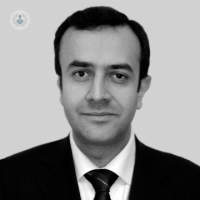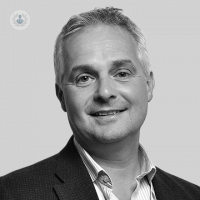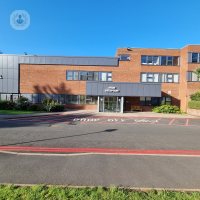Fatty liver
Professor Kevin Peter Moore - Hepatology (liver specialist)
Created on: 11-13-2012
Updated on: 02-07-2024
What is fatty liver?
Fatty liver disease is the accumulation of fatty acids and triglycerides in liver cells. There are two types:
- Non-alcoholic fatty liver disease: it is the most common cause for obesity due to a build-up of fat in the liver cells. There are other factors that can also trigger the disease, such as oxidative stress, the production and release of toxic inflammatory proteins, or necrosis or death of liver cells.
- Alcohol-related liver disease, also known as alcohol hepatic steatosis: as the name suggests, this disease is caused by excess alcohol intake. The liver breaks down most of the alcohol but during the process, harmful substances to the liver are released that cause inflammation and weaken the body’s natural defences.
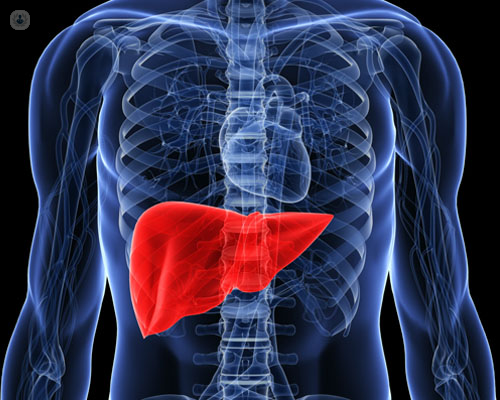
What are the symptoms?
Symptoms of this disease include upper right abdominal pain, general malaise, and chronic fatigue, among others. However, many patients don’t have symptoms but are diagnosed after having certain imaging tests such as an ultrasound or CT scan for other reasons.
These imaging tests are not always able to diagnose this disease, for this it’s best to undergo laboratory testing to be able to assess the degree of liver injury by assessing liver enzymes or transaminases.
Causes of fatty liver?
Specialists are still unsure as to why some people accumulate fat in the liver and others don’t. An important factor is that some cases of fatty liver develop swelling which could turn into cirrhosis. There are however some common factors for both types of fatty liver: being overweight or obese, insulin resistance, when cells don’t process sugar in response to the hormone insulin, and high blood sugar levels (hyperglycaemia) which can indicate prediabetes or type 2 diabetes and / or high levels of blood fats, particularly triglycerides.
How can it be prevented?
In most cases, fatty liver can be prevented if certain lifestyle changes are made, such as following healthy guidelines based on a varied, balanced, and low fat diet. Since alcohol is one of the things that damages the liver, it is very important to stop consuming alcohol.
Another important factor is to exercise regularly as that helps burn fat; exercises can be aerobic, such as running or walking.
What is the treatment?
There is no specific treatment for this disease, however it has been shown that weight loss, regular exercise, and following a balanced diet can help reduce fat in the liver.
Controlling cholesterol levels, diabetes, and / or any other cause for a build-up of fat in the liver is also important.
In cases of morbid obesity, bariatric surgery may be recommended.
